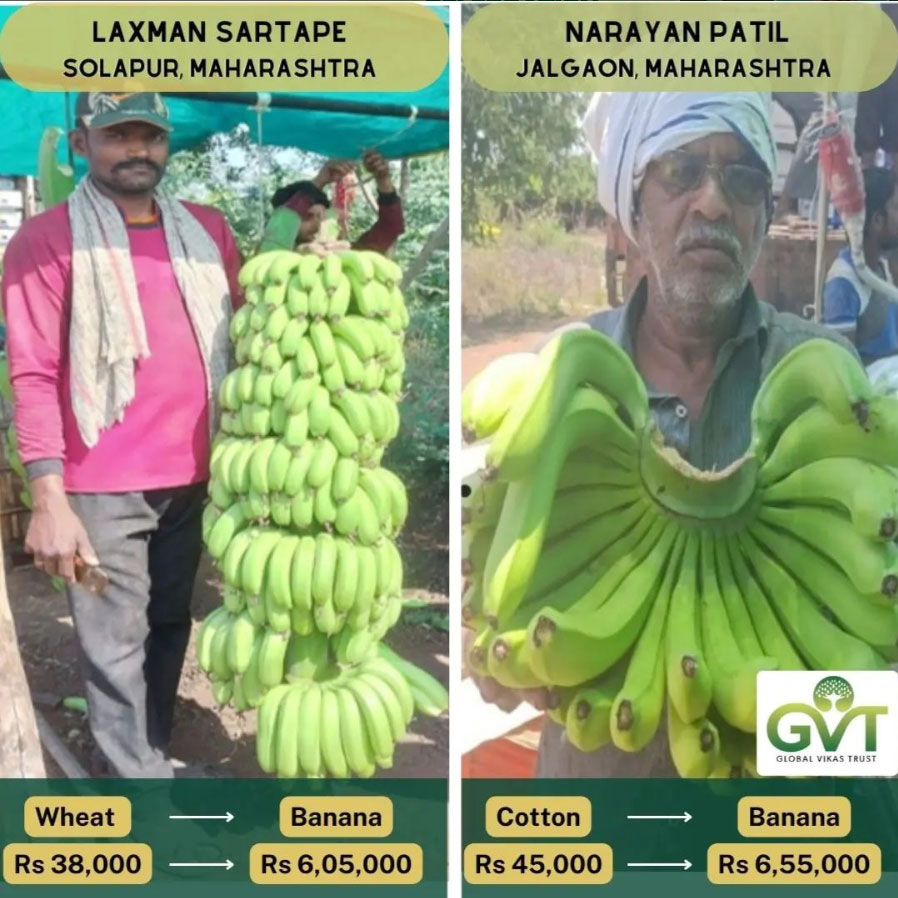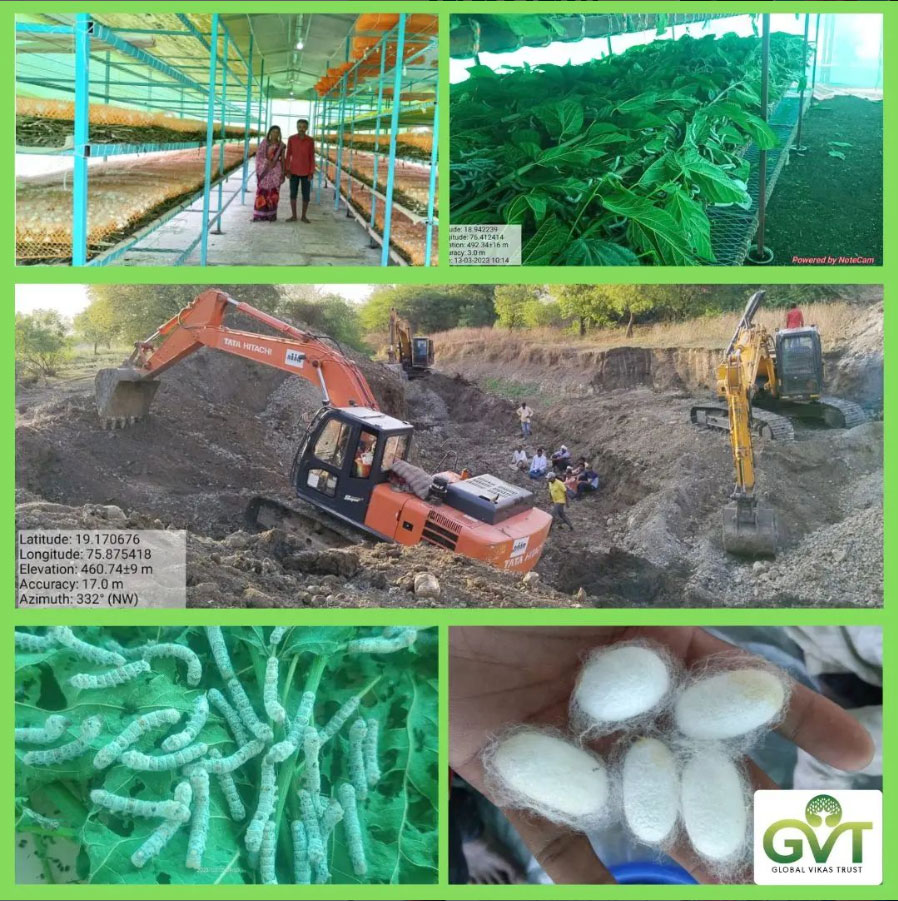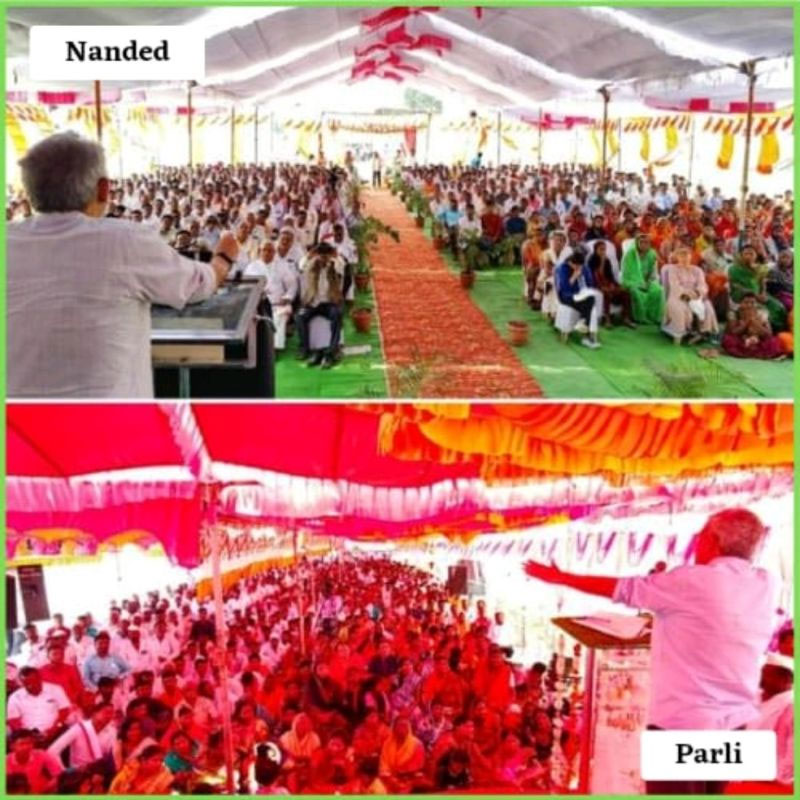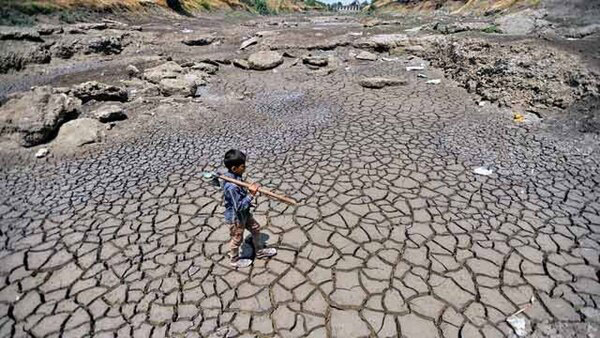
It was 12th April 2016. The news channel on television was blaring with the news: "12-year-old Yogita Desai, living in a small hamlet in Ashti, Beed district in Marathwada fainted and died while fetching drinking water. She had made many rounds to the handpump to fetch water and the 44oC sun finally got to her," said the health officer rather casually.

Along with the grieving parents and villagers, were a multitude of little girls and boys, dressed in tatters, with deadpan faces and soulless eyes, staring at me through the television screen. It seemed as if they were living because they were not yet dead.
I prided myself at being stoic and immune to such tragedies, generally looking through these pain points with unseeing eyes. But that fateful night, I could not sleep. The images haunted me through the night, every time I closed my eyes. Sleepless, I spent the entire night searching the internet for as many details as possible about the worrisome situation in Marathwada. The available information on the six droughts in the previous eight years, the abject poverty, farmer suicides and the immense scars left by water and food scarcity on the psyche of the people, especially the young ones, really shook me up.
The summer of 2016 proved extremely challenging as the villages suffered from an acute water shortage. There was no water in the villages, not even to drink. I discussed the dire situation with Dr Wange, a noted surgeon practicing in Parli town in Beed, Marathwada. After travelling intensively across the villages with him, interacting with the villagers, spending time just silently listening to tear-filled incidents of families whose members had committed suicide, I started understanding the scale of the avoidable pain. It was heart-wrenching. As Immanuel Kant has said, "You should do something, because it is the right thing to do". Dedicating my life to make a change in the lives of these farmers seemed the right thing to do. I instantly made the decision to spend the rest of my life working towards transforming the country by creating a crucible of change, beginning with Marathwada.


To immediately address the water shortage issue in the region, as an emergency measure, water tankers were supplied to 56 parched villages, financed through crowd funding till the monsoon arrived. Interactions with more and more villagers continued, with the quest to try and understand the ongoing scenario and their grievances. The climate crisis was making every year worse than the earlier ones. This was no longer academic knowledge for me, it was REAL, palpable and unfolding in front of my own eyes. It was clear that the worsening climate and geographical conditions were majorly impacting the poorest and the most vulnerable in India's villages. It was time to roll up one's sleeves and start working.
The two biggest problems that needed to be tackled head-on were poverty and the climate crisis. Selling my city home, I started living in the villages. The aim was to try and generate an initial interest about the possibility of transforming lives through collective action among the stakeholders. The underlying hope was that this would eventually lead to people's participation in a pro-development and non-confrontational movement. The Global Vikas Trust (2016) was thus born, its objective being to stir a mass movement in order to enhance farmer incomes and enrich the natural environment through the extensive plantation of millions of fruit bearing trees.
Despite my best efforts, the progress of the movement in the beginning did not align with my hopes. While our meetings drew hundreds of inspired villagers, there was a noticeable absence of female participation. Without women and music, there certainly cannot be a movement. Our relentless attempts to encourage the village women proved futile as the deeply entrenched patriarchal norms prevented them from attending such gatherings.
It was in the latter part of 2017 that a miracle happened. I was addressing a small temple meeting in a little village called Rewali. While I was speaking in my adulterated and broken Marathi, someone in an inebriated state from the gathering started speaking louder than me. I got irritated and said, "At least do not drink and come to the temple." After the meeting, I felt that maybe I should not have publicly humiliated the concerned person. But, the sarpanch took this episode very seriously. He, along with a few senior villagers approached the local illegal hooch shopkeeper and told him, "Already seven youth in the village have died of cirrhosis of liver by over-drinking. In the evening, drunk men sleep on the roads. Women and even 10-year-olds have started drinking. Why don't you stop selling alcohol?"
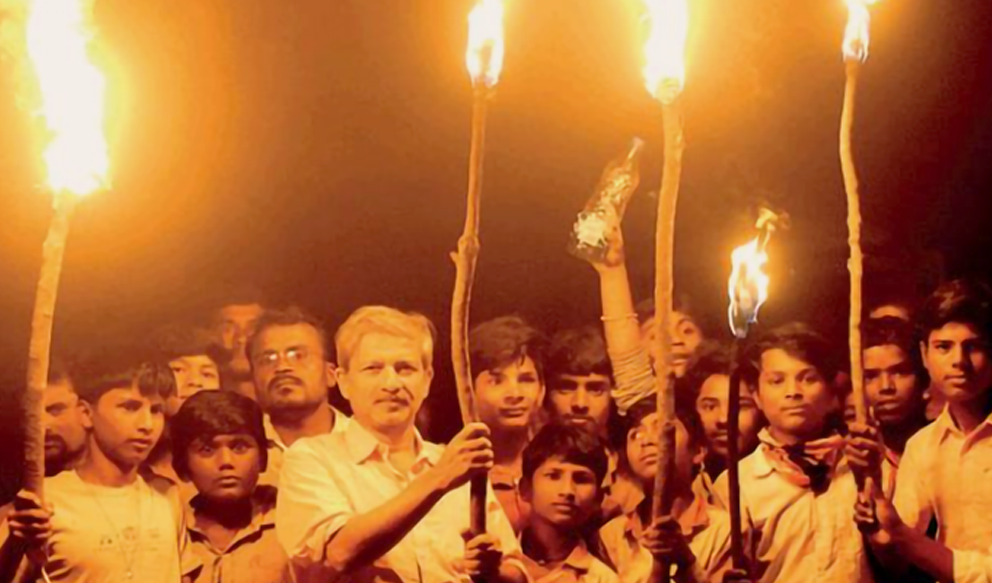

I have no idea what happened and how it happened, but magical change did occur with such a step. The shopkeeper said, "I have seven days of liquor stock, let me finish that and I will stop." The sarpanch called me and informed me of the development. Elated, I rushed the next morning to the shop, caught the feet of the shopkeeper and told him, "God has come within you. Now, how will you look after your family? Let me give you three pregnant goats so that you can earn an income through goat rearing." After seven days, he stopped selling liquor and I gave him the three pregnant goats, and from there started a unique movement.
Along with the villagers and help of the local police, we started raiding various liquor shops. The menfolk would run away, and I would hold the feet of the lady of the house and plead, "Mother, as long as I am there, these raids will not stop. Why don't you stop selling this illegal liquor and I will give you three pregnant goats?" It worked. At night, the youth and women would carry burning mashaals (torches) and go through village after village shouting, "No liquor will be allowed". Women would sit outside liquor shops chanting the name of Sri Ram. In fifteen days, it was a total success. All the liquor sale points stopped, while we gave the shopkeepers three pregnant goats each.
While many of those addicted to drinking went to far-away villages to drink and the overall incidence of drinking reduced. Most importantly, the women started looking at me as their brother from the city who had come to save their lives. My public meetings now boasted of rows of women who came to listen and proffer their support. Revolutionary songs found their way into our programs. The movement was truly on its way.
The summer of 2018 was scorching. The land was dry but the spark in the eyes of the villagers excited me. It was as if something special was waiting to happen. What was earlier hopelessness was now replaced with enthusiasm and determination. They had tasted the flavour of achieving success by working together. We had to take advantage of the mood.
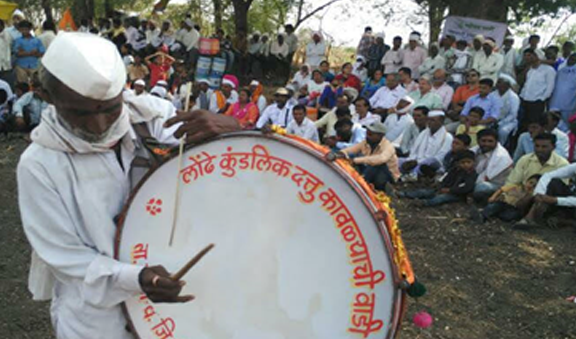
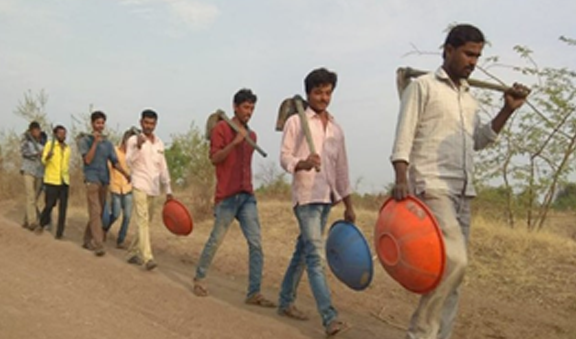
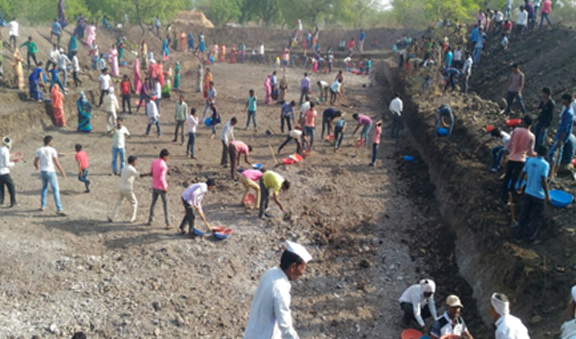
In the sweltering days from 15th April to 31st May, 2018, we rallied fifteen villages together with the resolute purpose of fighting the drought in forty-five days. Starting from 5:30 a.m. in the morning every day, armed with proper tools and in a well-planned manner, we started digging rivers, ponds and trenches till 1.30 a.m. the next morning. A break was taken in the sweltering afternoon. Machines were rented and men and women worked as if possessed. The final outcome was 70 kms of deepening and widening of the Paapanashi river and its tributaries. 162 farm ponds, 62 check dams, 5 KT weirs, hundreds of trenches and 222 crore litres of water storage were created in just 45 days. Change was happening.

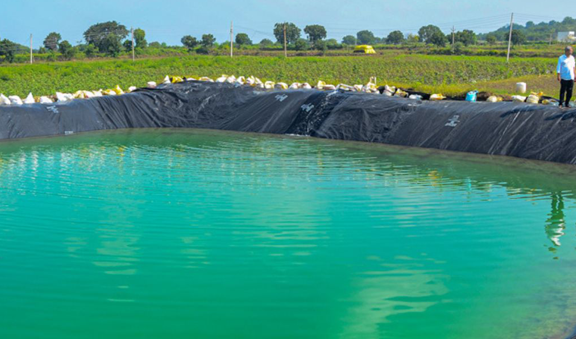
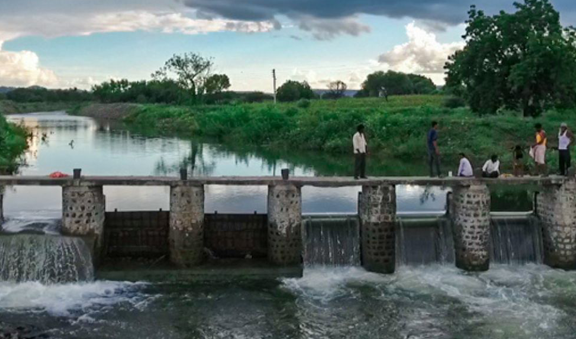
And then the rains came, the place was buzzing - with the green cover serving as a vital source of sustenance for countless microorganisms, insects, birds and animals, while also contributing to the increased production of oxygen.
Hope replaced hopelessness. Green had replaced brown. Life replaced barrenness.
It was time for the biggest gamble. And this is how it unfolded...
In the usual course, farmers were engaged in cultivating cotton and soya crops, yielding an annual income of approximately Rs 25,000 per acre. With a deep commitment our team embarked on a journey, visiting one village after another with the aim of persuading farmers through factual information, figures and statistical data to consider a shift in their cropping choices towards fruit-bearing trees, which would in turn boost their earnings. Despite having established trust and affection within the village communities over the years, the farmers somehow remained reluctant to depart from their traditional cropping patterns.
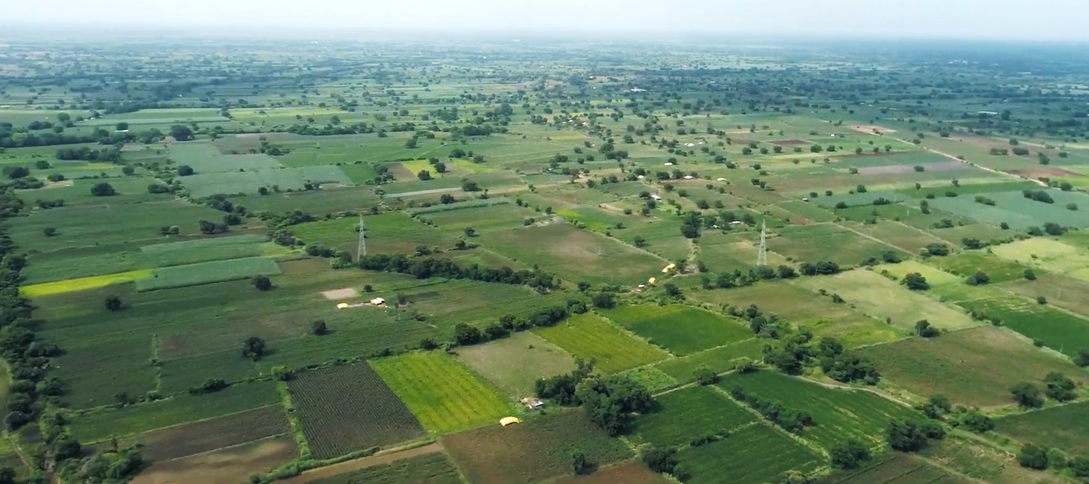
In 2019, we were able to convince only 1700 farmers to change their crops to horticulture and plant 1.18 million fruit trees. In 2020 and 2021, in spite of COVID, farmers planted 1.9 million and 7.8 million trees respectively. Last year in 2022, farmers planted 21 million trees and this year in 2023, we hope to plant 35 million trees. Short term trees like banana and papaya, medium term fruit trees like custard apple, guava, pomegranate, lemon, sweet lime, mosambi and longer life trees like mango increased farmer annual incomes from Rs 25-50000 per acre to an average of Rs. 2,50,000 - a 4-10 times increase. Our highly successful "proof of concept" slowly started attaining traction among the farmers and has expanded to 2900 villages in 29 clusters in Maharashtra and Madhya Pradesh. This initiative and the resultant change has led to the total plantation of over 40 million trees.
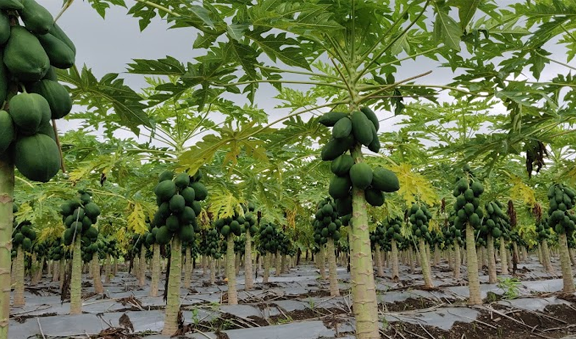

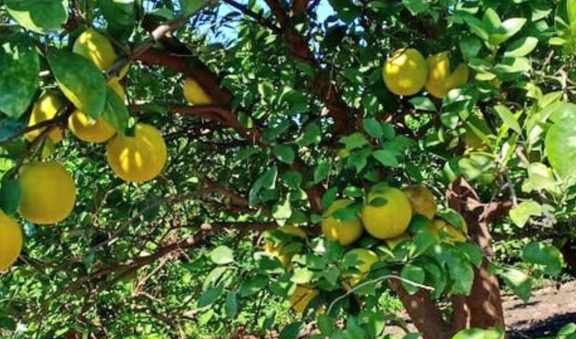
The increase in green cover through large scale tree plantations not only induced remarkable rainfall but also transformed a once-drought-hit arid area into a flourishing expanse of greenery. A significant outcome has also been the enhanced participation of all stakeholders involved in the endeavour, fostering a sense of collective responsibility.
Till 1700 A.D., India was referred to as the 'Sone ki Chidiya' (the golden bird), contributing to approximately one-third of the world's economy. However, in the present day, its contribution has dwindled to a mere 7 per cent. The revival of rural prosperity is imperative as it is in rural India that over two-thirds of India resides. The Global Vikas Trust's objectives are to harness the power of green cover, notably through extensive tree planting, bolster rural incomes, foster environmental sustainability and contribute to the broader vision of uplifting the incomes of the rural poor farmers.
The revolution to make India a "Sone ki Chidiya" has truly begun.


